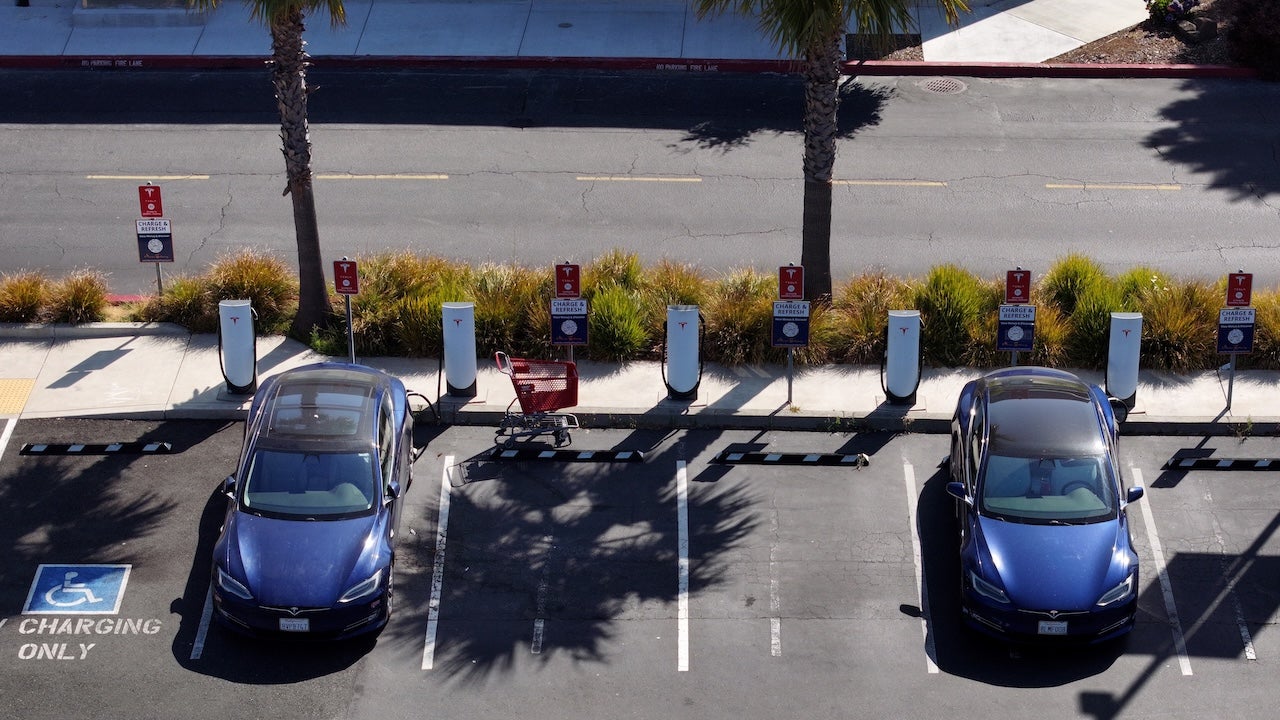If you’re considering buying an electric vehicle, now may be the time to act. A sweeping Republican-led proposal, referred to as the “One Big Beautiful Bill,” is charging through Congress and threatens to wipe out the popular electric vehicle (EV) tax credit for most vehicles in 2025.
The credit was originally launched in 2008, but received a major overhaul under former President Joe Biden’s Inflation Reduction Act of 2022. That legislation supercharged incentives, expanding the $7,500 credit for new EVs and rolling out a $4,000 credit for used electric vehicles.
“The purpose of the tax incentives was simply to spur EV adoption by giving a literal ‘incentive’ for people to buy EVs,” says Dave Thomas, director of content marketing and automotive industry analyst at CDK Global, a technology firm serving car dealerships.
However, President Donald Trump and other Republicans have vowed to eliminate the credit, but analysts say the tax credit has been a driving force behind the EV boom.
According to J.D. Power’s E-Vision Intelligence Report, 87 percent of EV shoppers in 2024 took advantage of the tax credit — many citing it as a key reason for their purchase.
That momentum could stall if the bill clears the Senate and makes its way to the president’s desk. Here’s what’s at stake under the “One Big Beautiful Bill.”
Here’s how the EV tax credit works now
Under the current law, which covers cars purchased in 2023 or later, taxpayers can claim the electric vehicle tax credit if they meet specific income and purchase requirements.
For new electric vehicles, you may qualify for a credit of up to $7,500, as long as the vehicle is primarily used in the United States. To be eligible, your modified adjusted gross income (MAGI) must fall below the following limits:
- $300,000 for married couples filing jointly or a surviving spouse
- $225,000 for head of household filers
- $150,000 for all other filers
The IRS allows taxpayers to apply the income limit based on the year they take possession of the vehicle or the prior year — whichever is more favorable.
For used electric vehicles purchased in 2023 or later, the credit is worth up to $4,000 or 30 percent of the purchase price, whichever is less. The vehicle’s purchase price must not exceed $25,000, and you must buy the car from a licensed dealer.
Also, the car must be at least two years old when you purchase it; for example, if you bought the car in 2025, it would have to be a 2023 model or older to qualify for the credit.
Used EVs have lower income limitations than newer EVs as follows:
- $150,000 for married couples filing jointly or a surviving spouse
- $112,500 for head of household filers
- $75,000 for all other filers
Another benefit: You can receive the credit at the time of the purchase instead of waiting until tax time to claim it, by transferring the tax credit to the dealer. If you choose this option at the dealership, you must still meet all the IRS requirements when filing your tax return.
House and Senate agree on ending the credit, but not on when
Much like the House-approved tax bill, the Senate proposal seeks to eliminate the electric vehicle tax credit for both new and used vehicles. But the Senate’s timeline moves even faster.
Here’s how the two versions compare:
EV tax credit: House vs. Senate bills
| House version | Senate version | |
| Value of tax credit | $0 for all EVs | $0 for all EVs |
| Expiration date | End of 2025 for most EVs | 180 days after bill becomes law for new EVs 90 days after bill becomes law for used EVs |
| New federal annual fee for EV owners | $250 for EVs $100 for hybrids | $0 |
The main difference between the House-approved bill and the Senate’s version is how quickly the EV tax credit would end.
Under the Senate’s proposal, the $7,500 tax credit for new electric vehicles would expire 180 days after the bill becomes law. The $4,000 credit for used EVs would phase out even sooner — just 90 days after enactment.
By contrast, the House bill would end the EV tax credit for most vehicles at the end of 2025. However, some vehicles could still qualify through the end of 2026.
Plus, the House version includes a manufacturer-based phaseout. Automakers that have sold fewer than 200,000 EVs could still offer the credit until the end of 2026.
“So, Tesla for example will not have any incentives on its vehicles after the bill passes,” Thomas says. “It will likely be hard for car shoppers to track this in real-time, and they will have to rely on research or their local car dealer to keep on top of it.”
New EV fee in House bill dropped in Senate’s plan
While the House-approved bill includes a $250 annual fee, the Senate’s version omits any mention of an annual EV charge. The House’s proposed fee for electric vehicle owners is a measure aimed at ensuring all drivers contribute equally to maintaining the nation’s roadways.
Currently, owners of gas-powered cars help fund highway infrastructure through the 18.4 cents per gallon federal gas tax. But that tax has remained unchanged since 1993, even as the cost of maintaining roadways has skyrocketed. Plus, cars have become more fuel-efficient — and some drivers have switched to electric cars.
But some experts argue the proposed $250 EV fee is excessive. The proposed fee would be nearly three times what the average driver pays annually in gas taxes, according to a Consumer Reports study.
“The proposal of an annual fee for EVs makes sense on its face as those owners don’t pay the federal or local gasoline taxes,” Thomas says. “However, most calculations say the average driver pays around $100 in gas taxes a year and this fee is clearly more than that.”
And EV owners often do pay state and local fees tied to their cars, depending on the tax rules of the state where they live.
Bottom line
While the Senate bill wouldn’t charge EV owners an annual fee and the House includes it, both chambers agree on one thing: Eliminating the federal EV tax credit altogether. With the EV credit potentially ending soon, drivers considering an EV purchase may want to act quickly. Waiting could mean missing out on valuable tax incentives that can help lower the cost.
Why we ask for feedback
Your feedback helps us improve our content and services. It takes less than a minute to
complete.
Your responses are anonymous and will only be used for improving our website.
Help us improve our content
Read the full article here





